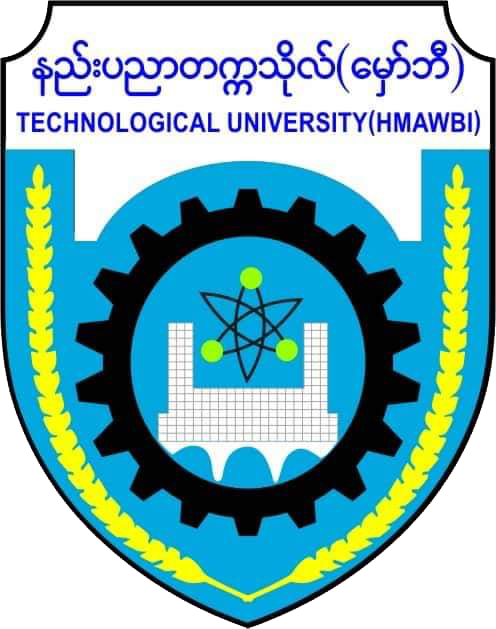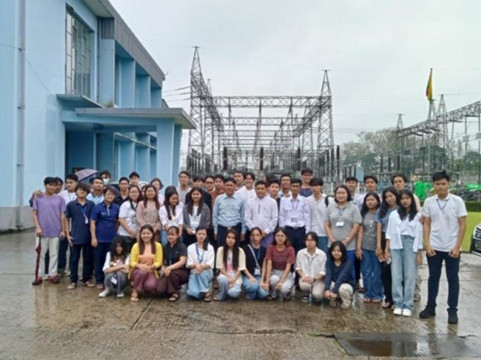Department of electrical power engineering is one of the main engineering departments of Technological University (Hmawbi). Department of Electrical power engineering provides an Electrical engineering education to under graduates (Bachelor of Engineering )and post graduate students (Master of Engineering) . This Department has been established since thirty years ago.
There are five main engineering fields in this department.
- Low Voltage , installation and Safety
- Electrical Machinery
- Power Systems
- Renewable Energy and
- Electrical control.
In this Electrical Power Engineering Department , about eight hundred students who are learning in undergraduate and twenty postgraduate programme receptively.
Now, Electrical power department is trying the Graduates will contribute the advancement of electrical power engineering knowledge and practice of graduates who will apply fundamental scientific and engineering principles to solve complex engineering problems systematically, creatively and innovatively, with the aids of modern analytical and design tools including research methodology. And nurturing the Graduates of the programme will communicate and manage effectively as a leader and/or team player in diverse destinations of electrical power engineering and in multi-disciplinary environment, striving for responsible leadership and engineering innovations.
Graduate Attributes (GAs)
Upon completion of the programme, students will have:
- Engineering Knowledge: Apply fundamental knowledge of mathematics, engineering science, and achieve specialization in electrical engineering discipline
- Problem Analysis: Identify, formulates, analyze electrical engineering problems and apply basic engineering principles to evaluate the alternative solutions
- Design / Development of solutions: Design solutions for electrical engineering complex problems and design systems, components or processes to meet desired needs concerns for safety, societal and environmental considerations
- Investigations of complex problems: Analyse electrical engineering problems and system using research-based knowledge and methods
- Modern tool usage: Create, select and apply appropriate techniques, resources, and modelling tools, simulate and analyse electrical engineering complex problems
- The Engineer and Society: Have sufficient knowledge of the humanities and social sciences to understand contemporary issues concerning the interaction between technology and society
- Environment and Sustainability: Understand and evaluate the sustainability and impact of professional engineering work in the solutions of electrical engineering in environmental contexts
- Ethics: Achieve personal success with awareness and commitment to their ethical and social responsibilities
- Individual and teamwork: Develop the skills for an individual, a member or leader of teams in multi-disciplinary settings
- Communication: Communicate effectively on electrical engineering activities with engineering community and with society at large , such as being able to comprehend and write effective reports and design documentations , make effective presentations and give and receive clear instructions
- Project Management and Finance: Demonstrate knowledge and understanding of engineering management principles and economic decision making
- Life-Long learning: Maintain and improve their technical competence through lifelong learning in an advanced degree program in the electrical engineering fields
Programme Educational Objectives (PEO):
- Graduates of the programme will contribute the advancement of electrical power engineering knowledge and practice of graduates who will apply fundamental scientific and engineering principles to solve complex, engineering problems systematically, creatively and innovatively, with the aids of modern analytical and design tools including research methodology.
- Graduates of the programme will communicate and manage effectively as a leader and/or team player in diverse destinations of electrical power engineering and in multi-disciplinary environment, striving for responsible leadership and engineering innovations.
- Graduates of the programme will develop the multi-skilled engineer with professional practices, ethical responsivities, and sustainable development of electrical engineering techniques through life-long learning.







